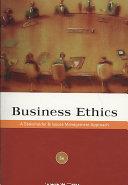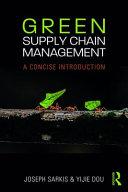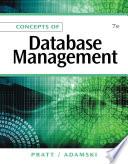The classic guide to supply chain strategy--re-created to help business leaders gain an advantage in today's volatile, globalized arena The definitive guide to supply chains that deliver value The global landscape has changed dramatically since the first edition of Strategic Supply Chain Management established itself as the authority on creating value and achieving competitive advantage from the supply chain. Shorter economic cycles, more-frequent natural disasters, higher costs in low-cost countries, more-restricted access to working capital, and greater focus on sustainability have made effective supply chain management much more challenging--and much more critical to the bottom line. This second edition is your answer to gaining a strategic advantage in the face of these challenges. Drawing on dozens of new company examples as well as cutting-edge benchmarking research, it shows you how to make your supply chains more agile, flexible, and resilient. With 80 easy-to-read tables and diagrams, this fully revised book explains how to: Develop a supply chain strategy that will help you realize your business goals Design a process architecture that maps out the activities of the end-to-end supply chain Create the most effective supply chain organization Build the most beneficial relationships with your supply chain partners Use metrics to assess and drive business success Implement transformational change See how today's best supply chain strategies work in all-new profiles of BASF, Essilor, Haier, Kaiser Permanente, Lenovo, and Schlumberger. Find out what these industry leaders are doing to get the greatest value out of their supply chains. When value depends on how well you deliver, you need Strategic Supply Chain Management, Second Edition. PRAISE FOR STRATEGIC SUPPLY CHAIN MANAGEMENT: "This book shows convincingly that a robust supply chain strategy is critical for business success in today's uncertain economic environment. Cohen and Roussel explain not only what makes for a good supply chain strategy but also how to put that strategy into practice." -- Jim Miller, VP, Worldwide Operations, Google "Strategic Supply Chain Management loudly and clearly makes the case that successful companies' supply chain strategies are closely aligned with their competitive differentiation and operating models. The book uses in-depth examples that bring these concepts to life and demonstrate that one size doesn't fit all. Anyone who thinks operations is just another corporate function needs to read this book." -- Manish Bhatia, SVP, Worldwide Operations, SanDisk "The advent of global marketplaces, heightened competition, accelerated pace of product innovation, and fast-changing customer preferences have increased the impact of the supply chain on company profitability and long-term success. But cultural challenges to successful supply chain design remain. Cohen and Roussel's book provides a platform for addressing these challenges and is recommended reading for chief executives, strategy professionals, and supply chain practitioners." -- Martin Roper, Chief Executive Officer and President, Boston Beer "The authors present a straightforward path for developing and deploying a global supply chain strategy that addresses the priorities of today's executive management teams." -- Hau Lee, Thoma Professor of Operations, Information and Technology, Stanford Graduate School of Business "Strategic Supply Chain Management, Second Edition, is an important resource for executives who are trying to take their supply chain performance to the next level. Given the enormous challenges of the current business environment, it's 'must' reading." -- Joe Francis, Executive Director, Supply Chain Council “Following on from their ground-breaking first edition, the authors provide further evidence of the critical role of supply chain management in creating competitive advantage. Managers facing the challenge of coping with increasing levels of complexity in global supply chains will find valuable guidance in this in this revised work.” -- Martin Christopher, Emeritus Professor of Marketing & Logistics, Cranfield School of Business, Cranfield University “This is not another one of those books that are heavy on theory but light on practical advice. Filled with examples of companies from a wide range of industries and geographical regions, it provides guidance that is clear and easy to understand.” -- Greg Clapp, SVP, Operations, Fujitsu "Concise and cogent, Strategic Supply Chain Management, Second Edition, lays out the key components for top supply chain performance and backs up these insights with new benchmarking research. Managers across the organization will find answers to their supply chain questions here." -- Paul Bischler, Vice President and Controller, Burlington Northern Santa Fe Railway
The book uses in-depth examples that bring these concepts to life and demonstrate that one size doesn't fit all. Anyone who thinks operations is just another corporate function needs to read this book.









